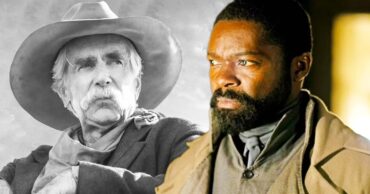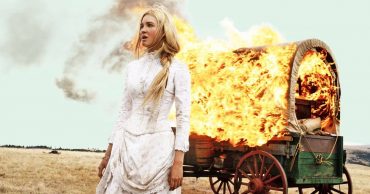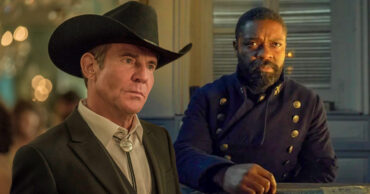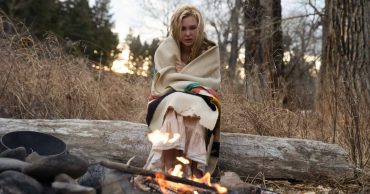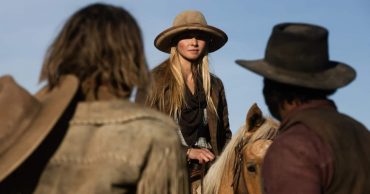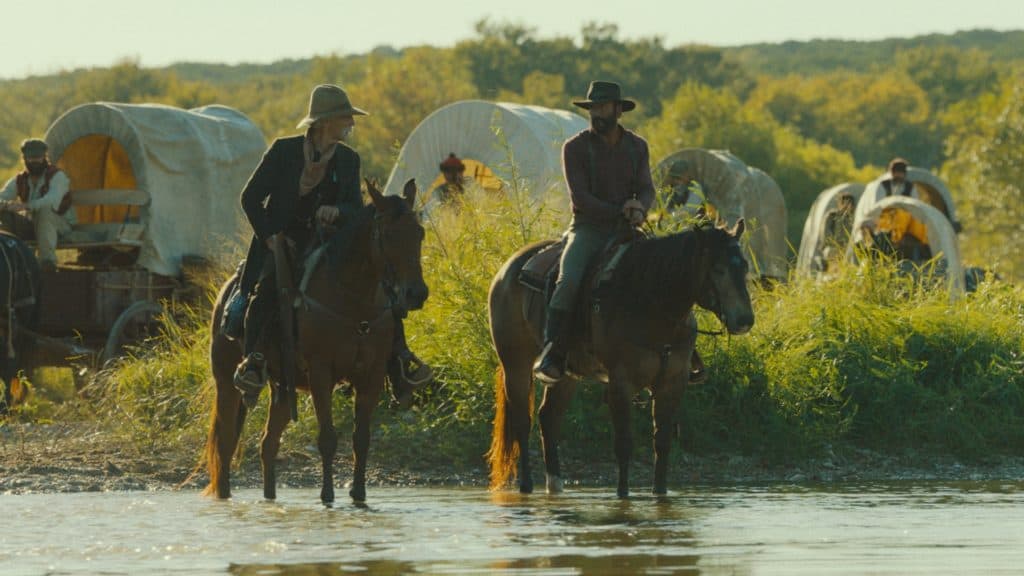
It’s an odd thought to have these days isn’t it? A river isn’t such a big thing to cross any longer if one wants to get to one place from another, unless of course someone wants to be extra and forge a river in the old fashion. Of course, that’s a death sentence in some areas of the world thanks to the current, the various dangers that might lurk in one river or another, and several other elements that might conspire to take someone from this world. In the days of the pioneers however, when there were fewer bridges and no roads or pathways that could convey wagons and horses from one area to another without going miles out of the way, a river was an obstacle to be braved, conquered, and in some cases feared. For those us that don’t fear the water, that can swim, and were never aware of how treacherous a river can be, this episode might be a little confusing. But back in the day, when things were simpler and yet so much harder, a river was a thing to be feared and, at the very least, a reason to worry.
Two weeks after ‘River’, ‘The Crossing’ picks up where the cast of 1883 left off, with a supposedly insurmountable obstacle thrown in their path that both Shea and James knew could be the end of the European settlers if they weren’t willing to listen and avoid panicking. But, and there are spoilers coming, the fact is that those that don’t understand what a current can do, or how people will react when fearing for their lives, are those that are bound to be lost when the stuff hits the fan, so to speak. James Dutton, always more concerned for his family than the settlers, at least helps out as he’s been doing, but it’s clear that he’d rather be on his way instead of helping Shea continue to help the settlers, who are growing stronger but also more desperate, as the open trail continues to grind them down with each passing mile.
As this is going on, the relationship between Elsa and Ennis is also reaching dangerous territory as James is leery of the cowboy, but admits to Elsa that he can’t treat her like his property and his daughter at the same time. In other words, it’s her choice who she likes, but James isn’t foolish enough to step between his wife and daughter when it comes down to the discussion of whether or not Ennis is the man for her. Plus, the change in Elsa continues to be seen as she trades a bit of gold for a pair of pants in order to keep the chafing down to a minimum as she continues to enjoy her role in herding cattle. While Elsa is slowly becoming a frontierswoman, someone who is growing stronger but still has the girlish vulnerabilities and whimsy that she’s become known for, it’s kind of obvious that the open prairie is changing her in other ways as well. When coming upon the piles of furniture and other items that the settlers are forced to leave behind so that they can forge the river without sinking, it’s evident that she hasn’t moved forward yet, at least not completely.
What Shea tells the settlers is accurate however, that there are only so many choices open to them, and carrying parts of the past, of who they were, who they are, is no longer amenable to the path they have to tread now, since the journey demands everything, and if one can’t put forth that kind of payment, then they have no business being on the trail. It’s harsh, it’s unforgiving, but it’s the truth, and it’s one that the settlers need to start realizing if they want to survive. So far the settlers have lost quite a bit, and it feels as though they’re going to have to lose a lot more before the journey is over. The one thing that’s easy enough to understand however is that the people that made this journey came to realize that in order to reach their goal it was going to take everything they could give, and more. A lot of us have played the game The Oregon Trail and likely grown frustrated as we were told that our caravan had died due to starvation, dysentery, or something else. The truth of this however is stark and unyielding. Despite being a TV show, one can’t help but shudder just a little to think that this is what settlers faced back in the day. Elsa’s realization that no matter how much a person cares for the land that the land won’t love them back is quite accurate, no matter how defeatist it might sound. One thing that’s been true since humans have been around is that the land will do what it will, regardless of what people feel about it.
 Follow Us
Follow Us
